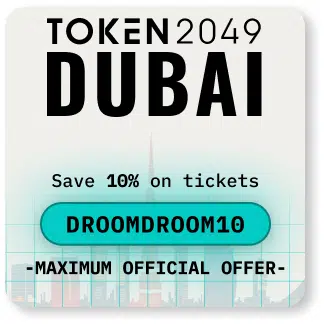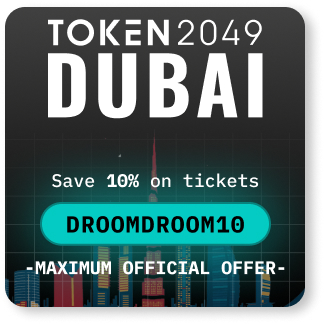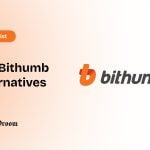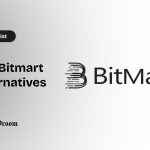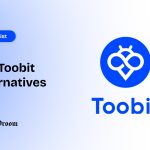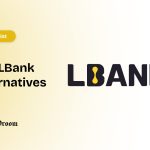The employment industry is going through an evolution post-pandemic, with professionals like blockchain developers reigning the industry. Recent development in the AI realm is fueling the phenomenon. Automation of operations in all sectors is posing a threat to professionals. Thus, instead of sticking to their old careers, people are now upskilling themselves to prove their worth in emerging fields. For example, generative AI tools are replacing coders, and thus currently, the demand for website developers is low. However, with the crypto industry flourishing, there is still hope for people working closely in technical fields. Reports show that there has recently been a rise in interest in blockchain development as it has a promising prospect.
Blockchain development includes processes of building blocks, otherwise known as distributed ledger technology or DLT. It is unchangeable but can be shared and is used to store records of transactions of both tangible and intangible assets in the digital realm.
Who Is A Blockchain Developer?
The primary function of a blockchain developer is to create highly secure blocks or networks that individuals can use to store data of their daily transactions. The concept sounds familiar to conventional database models that also help store similar information.
However, the critical difference is that blockchain is decentralized. It means no single organization or individual will have complete control over the network. On the contrary, the traditional models are controlled by authorities or a particular entity, thus posing security risks.
To learn more about the threats in the digital ecosystem and the best practices for developers to combat the issues, give this article a read.
Artificial intelligence, quantum computing, blockchain technology, brain-computer interface, and digital transformation of enterprises – digital technology and digitalization are gaining traction in global economic development.
— ChineseEmbassyManila (@Chinaembmanila) June 1, 2023There are two types of blockchain developers:
- Core Blockchain Developers
They work on the infrastructure of blockchain clients like Bitcoin, Ethereum, etc., and are responsible for creating protocols, tax tech, proof of work, etc., for these clients. They play a core role in the industry as they make the network secure.
- Blockchain Application Developers
Blockchain application developers work on Decentralized Applications, or what you know as DApps, on existing blockchains. The DApps are different from traditional apps because they do not have a central location and exist on every node of the blockchain, thus providing access to all users.
Skills That You Should Learn To Become A Blockchain Developer
The job of a blockchain developer is rewarding. However, to become one, a person should have a good understanding of cryptography and coding and master the following skills.
Here are the six skills that you should hone to be a successful blockchain developer:
- Excellent Grip On Command Line Interfaces
To be a proficient blockchain developer, you must strengthen your basics. The first step is to master several command line interfaces. If you are a beginner, you can learn Unix, Linux, or CLI interfaces. Knowledge of different command lines would give you more control over system functions and make the process simpler and faster. Both core and application developers should learn about command-line interfaces.
- Being Efficient With JavaScript
Every developer understands the importance of JavaScript, the first programming language developed in 1995. To make your task more manageable as a Blockchain developer, you should understand JavaScript and the languages it supports.
It is on our must-list as JavaScript is a client-side scripting language, making computation easier than PHP, a general-purpose scripting language. While using JavaScript, the client receives the code directly as opposed to PHP, where the client receives the code after the computation is done on the server, thus making the process lengthy.
- Building A Good Understanding Of NodeJS
If you plan to be a Blockchain Application developer, you must learn how to use NodeJs, an open-source, cross-platform javascript runtime environment. It allows developers to efficiently use blockchain applications, especially those required to handle multiple requests simultaneously. Experts in the field highly recommend budding developers build a strong understanding of NodeJS because of its fast performance and capability to handle large amounts of data.
- In-Depth Knowledge Of Blockchain Basics
So far, we discussed some common skills that every developer should learn. However, one must also gain niche knowledge to become a blockchain-specific developer. Here are some skills that you must learn before starting your blockchain journey.
- Cryptography
To become proficient at blockchain development, you should have profound knowledge of the protocols in crypto and how they work. It is crucial as it helps the developer to analyze and mitigate risks timely. In addition, strong knowledge of coding and mathematical principles is required to build your understanding of cryptography.
- Blockchain Architecture
Suppose you are planning to be a core blockchain developer. In that case, you must learn about the four types of blockchain architecture: Public Blockchain, Private Blockchain, Consortium Blockchain, and Hybrid Blockchain. A good understanding of blockchain architecture will help you understand the client’s needs. Like cryptography, knowledge of blockchain architecture is also essential to build a secure network.
- Data Structures
As the whole blockchain ecosystem is nothing but sets of data fed into a virtual network, every blockchain developer needs to understand data structures. It will help them determine how complex the structure of the network should be, the level of security needed, and which platform they should use to design the network.

If you want to learn more about Blockchain technology, this article is the one for you.
- Understanding How Solidity Works
To design a blockchain network, a core developer needs to understand how to deploy smart contracts that will help automate operations on the network. It is a complex process, and to learn it, a developer should be apprehensive of Solidity.
It is an object-oriented programming language that developers can use on various blockchain platforms, but it was designed specifically for the Ethereum network. Understanding programming languages like JavaScript or C++ can help you quickly grasp Solidity, as these modern object-oriented languages determine its syntax.
The latest Solidity compiler version, 0.8.20, introduces a new change that will reduce gas usage at both runtime and deployment ⛽.
You'll be able to cut down on your gas costs just by upgrading Solidity versions.
Let's use this short contract below to explain how it works 🧵: pic.twitter.com/U7BtlpisA8
— cygaar (@0xCygaar) May 28, 2023- Detailed Knowledge Of Hashing Algorithm
As the crypto ecosystem is volatile and prone to fraud and hacking, it is a blockchain developer’s responsibility to create a safe network. They can do so by building a solid understanding of the hashing algorithm. Hashing is a crucial part of a blockchain network as it ensures the smart contract is immutable. In addition, it has several applications, and the most notable ones are digital signatures, Merkle trees, crypto mining, and PoW consensus.
Thus, blockchain developers should learn hash functions to ensure that the hash algorithm they are building can determine the authenticity of each transaction on the network.
How Much Will It Take To Become A Blockchain Developer?
Learning about blockchain development is a complicated process, so it is better if you start early. If you are a beginner in website development and starting from scratch, i.e., understanding JavaScript, it may take approximately two years to become a blockchain developer.
However, if you are already working as a website developer, it will take you approximately six months to learn the nitty gritty of blockchain development.
Final Thoughts
Blockchain development is still emerging as a career path and is far from becoming conventional. A recent trend among young generations shows that, unlike the boomers, the Millenials and Gen-Zers are more interested in unconventional career paths like being a blockchain developer. Thus, it would be ideal if you tap into the field early. Moreover, it would provide promising prospects as the demand for blockchain developers is increasing almost every moment, with several companies seeking growth opportunities in the ecosystem.





